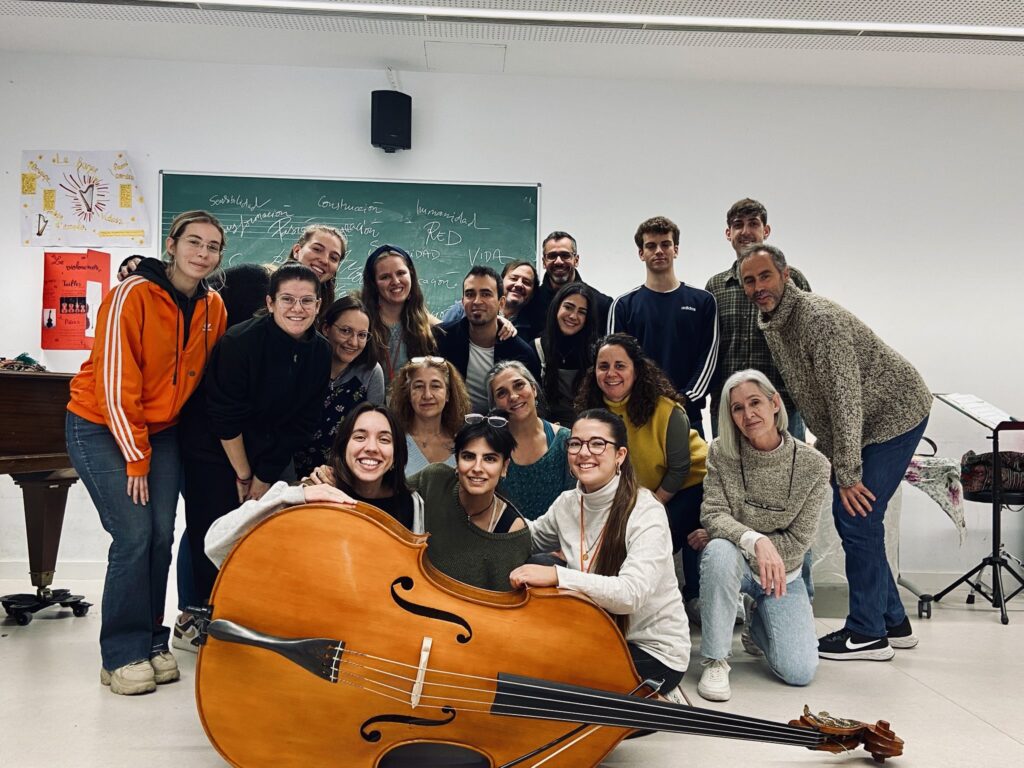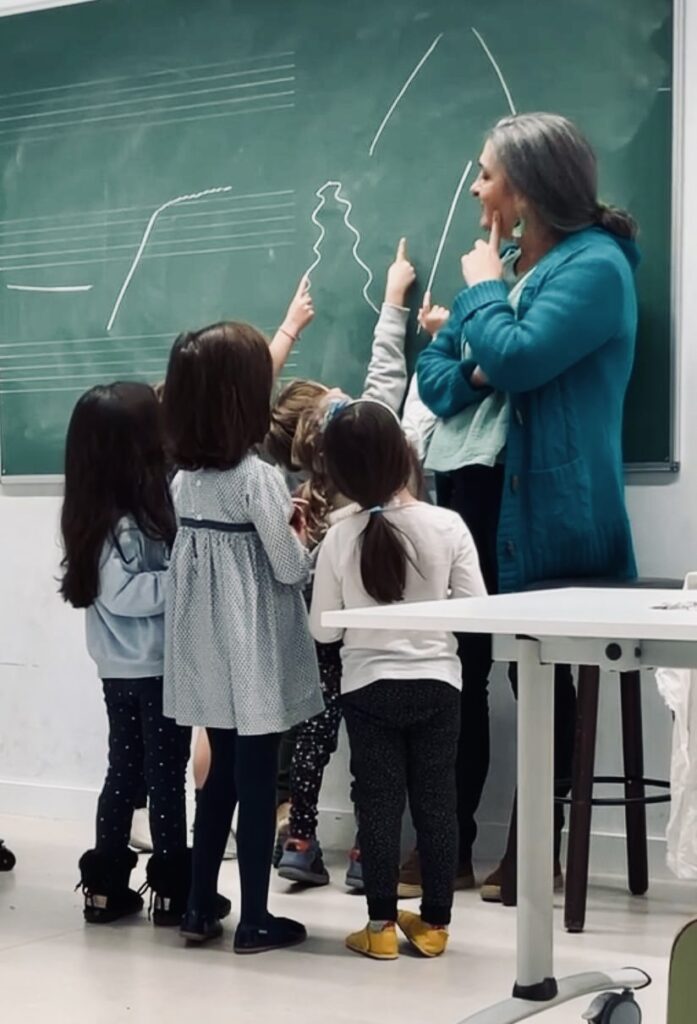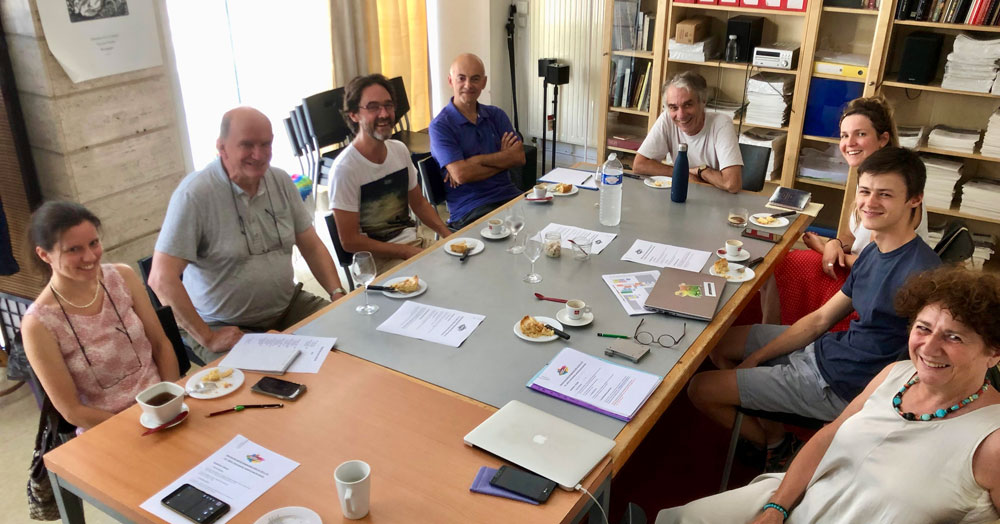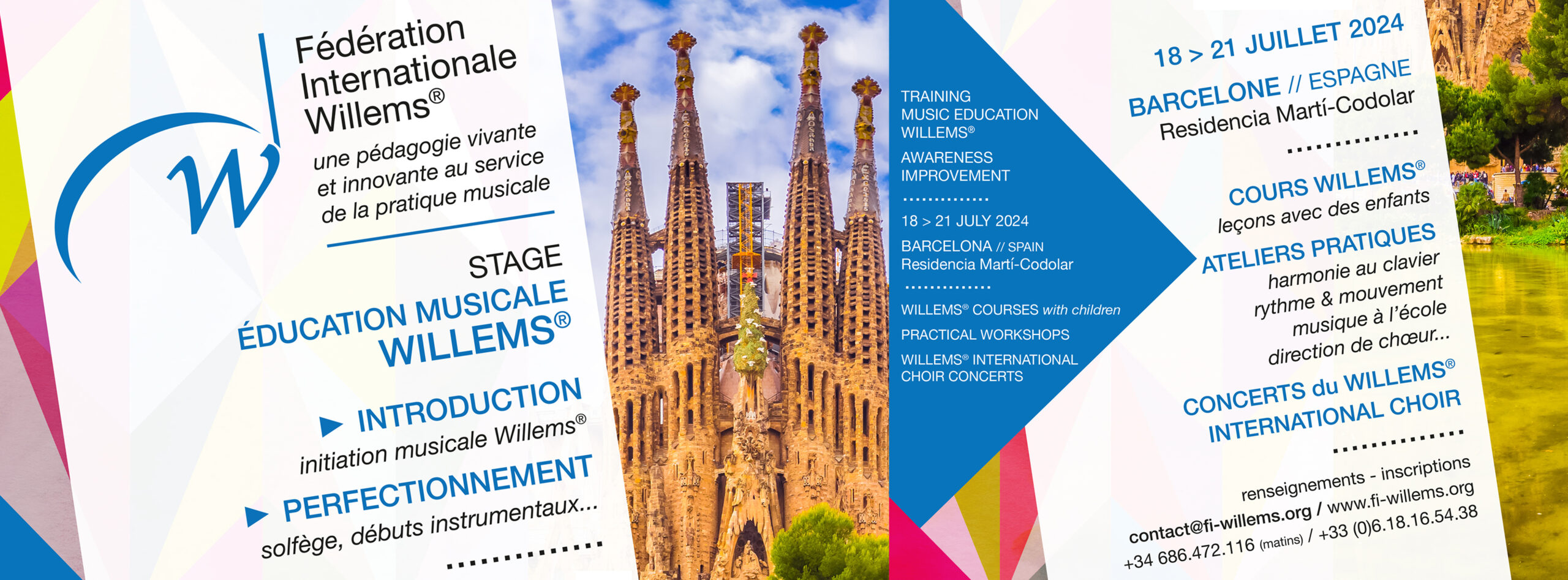A look back at the Willems courses in November

The life of the International Willems Federation continues with energy and inspiration! At the end of November, three awareness-raising courses were held, each highlighting the principles of Willems® musical pedagogy. These events, rich in sharing and discovery, reflect the mission that drives us: to pass on a global and human musical education.
Here’s a look back at the three highlights at the end of the year:


Madrid – Willems® Pedagogy awareness course
On the weekend of 30 November, a course to raise awareness of Willems musical pedagogy, given by Maria Angeles Pérez Lancho and organised by OJEM, was held on the premises of the Lycée Français de Madrid.
Twenty people attended, including six from outside the OJEM, from Madrid as well as Cordoba, Valladolid and Salamanca. In the words of the participants, ‘It was an intense 12 hours of exceptional training’. In particular, Maria Angeles demonstrated a practical class with 6 OJEM introductory music students aged 5: a key moment in this training!
This workshop was a great discovery for many, with concrete examples and a deep reflection on the Willems pedagogy, which enables pupils to progress serenely towards musical language, through rhythm, melody and harmony.
A weekend that could be summed up in inspiring words, with the happiness of children and their parents, teachers from OJEM and elsewhere.
Let’s hope that all these discoveries can bear fruit and that they are the start of a beautiful journey.
On 28 November, the “grand studio” at the Conservatoire Darius Milhaud in the 14th arrondissement of Paris hosted a one-day training course organised by the Musique en Mouvement association and led by Béatrice Chapuis-Westphal, head of training at the International Willems Federation. The course brought together teachers of various instruments (piano, guitar, cello, saxophone, clarinet) around a central theme: ‘the link between musical initiation and instrumental learning.’
The day began with a reflection on the fundamental pedagogical principles of the Willems® method: the place of listening, body rhythm, and auditory awareness in musical learning. Béatrice Chapuis proposed practical activities to link these aspects to the first years of instrumental learning, while emphasising improvisation, which is often little explored in traditional teaching methods.
The course also provided valuable opportunities for exchange between participants, encouraging them to reflect on their teaching practices and integrate the Willems® principles into their lessons.
The teachers expressed their enthusiasm for the day, which they found both rich in practical content and inspiring for their day-to-day teaching. It was a great success for the Willems® pedagogy, which is always on the lookout for a lively way of transmitting music that is adapted to all ages and student profiles.
Paris – Between musical initiation and instrumental learning

Lecture at the University of Barcelona: Willems pedagogy and music therapy
For the second year running, the Willems® pedagogy was presented to the students of the Master in Music Therapy at the University of Barcelona. On Saturday 30 November, Eulàlia Casso i Samsó led a 3.5-hour session entitled ‘The Willems pedagogy, a tool for human development’.
This talk was divided into two parts: a general introduction to the Willems® method and a practical presentation of the first two levels of musical initiation, with the active participation of the master’s students.

A highlight of the session was the showing of videos illustrating the work carried out over a ten-year period at Musicant, Escola d’Educació musical i instrumental, with a group of young people with functional diversity.
These videos highlighted how the gradual application of the first two levels of initiation – through simple songs (from two to five notes) evolving towards canons and second voices – has led to significant improvements in intonation and musical expression.
The group of 17 master’s students showed great interest in this approach. Some of them, already working with the Suzuki method, envisaged combining this instrumental vision with the aural development tools offered by the Willems® pedagogy.
In conclusion, this presentation confirmed that the principles of the Willems® method offer a valuable contribution to music therapy, bringing a global and human approach to musical practice.


